Arizona Passed Prop 207, Now What?
Written by Chris Weatherall on Dec 18, 2020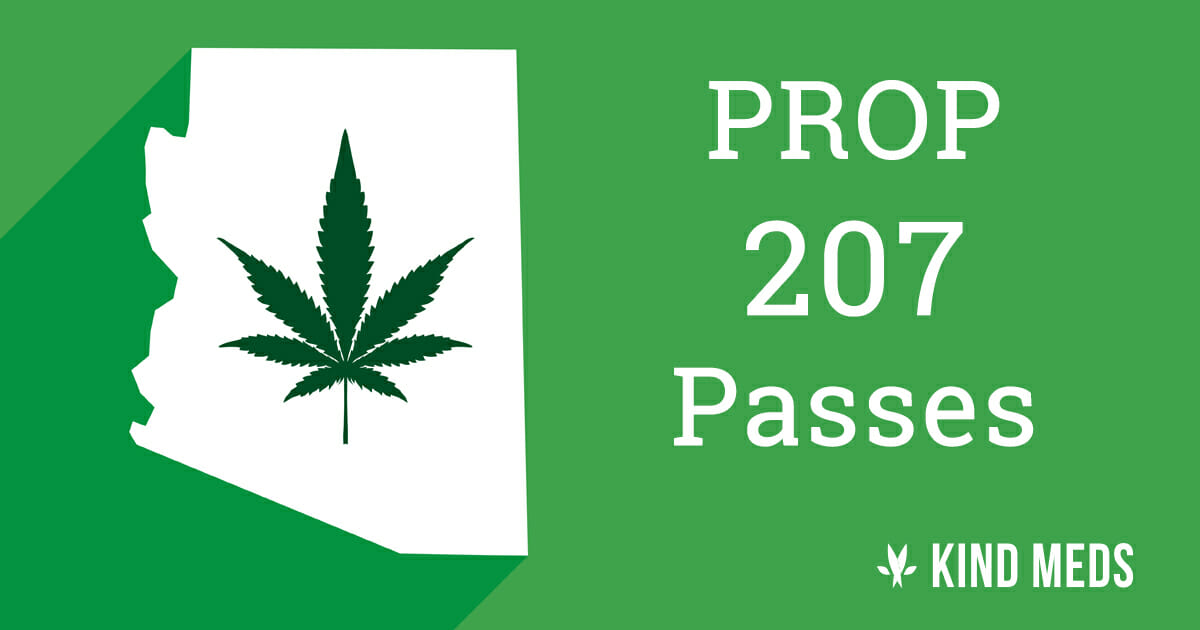
In the 2020 election, several states voted for various measures to legalize marijuana. In Arizona, this took the form of Proposition 207, which would legalize recreational marijuana for adults in the state. On the November 3 ballot, voters approved the proposition by just over 60%. It effectively changes marijuana policies in Arizona but will take some time to hash out the details completely and become official law. Now that Arizona passed Prop 207, many questions remain. Here’s everything you need to know about this new legislation.
What Is Prop 207?
Proposition 207 in Arizona legalizes recreational marijuana use for adults over the age of 21, allowing for legal possession up to one ounce. It also allows individuals to grow up to six plants in a private residence or up to 12 in a household with two or more people. It puts the Arizona Department of Health Services in charge of regulating marijuana, and it allows for a tax on the sale of marijuana—the same 16% tax that is charged on cigarettes and alcohol. This tax will be used to help fund certain state agencies.
Another part of Prop 207 creates the Social Equity Ownership Program. This program is designed to prioritize granting licenses to owners who may have been impacted disproportionately by previous marijuana legislation and its enforcement.
The proposition will also allow those who were previously convicted of certain marijuana charges to have their records expunged. It includes previous charges of possession of up to one ounce or growing up to six plants. The expungement eligibility would start in July 2021.
When Will Prop 207 Take Effect?
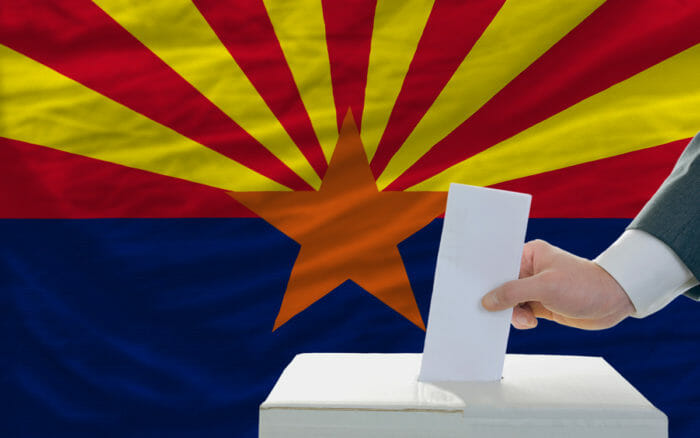
Even though Arizona voters elected to enact Proposition 207, it is not effective immediately. These propositions must go through a certain process first before they become official law. First, these election results need to be certified by the state. Certification comes from the secretary of state and happens in early December. But even at this point, recreational marijuana will still not be completely legal.
Once the proposition is certified by the secretary of state, marijuana will be decriminalized. However, fully legal sales may not occur until March 2021. This is because the Arizona DHS, as well as law enforcement agencies and court systems, need a little more time to work out the details and ground rules for the now-legal marijuana industry.
On January 19, sellers interested in applying for legal licensure may submit their applications to the state. The state may take up to 60 days to process these applications and issue the official licenses. Dispensaries that are already established and are in good standing with the state will be among the first to be licensed.
Questions About Arizona Cannabis Laws 2021

With this new legislation, many people have questions about how these new laws will work. And there are some details you should be aware of so that you can comply with the new laws.
Where Will I Be Able to Smoke?
Just because recreational marijuana will be legal, it doesn’t mean that you can smoke wherever you want. Most public places will prohibit smoking marijuana, including parks, sidewalks, and inside of restaurants. You will be able to enjoy marijuana in your own home or on private property, but even this comes with a caveat. Landlords and building owners will retain the right to prohibit marijuana use in their buildings and properties.
Work may also be off-limits in terms of recreational marijuana use. Employers will also reserve the right to prohibit marijuana at the workplace and have the right to discipline or terminate employees who violate workplace rules regarding marijuana use. Employers can also still conduct pre-employment drug screenings and decline offers of employment if a candidate tests positive. Medical marijuana patients remain protected against discrimination, as long as the job is not safety-sensitive.
Are There Legal Limits on the Amount of Marijuana I Can Have?
Under the new Arizona laws, any adult may possess up to one ounce of marijuana at any given time. Up to 5 grams of this may be in the form of concentrates. Adults may grow up to six plants
at home or up to 12 in a household of two or more adults. These legal limits do not change the amounts of medical marijuana allowed in the MMJ program. Medical patients will be allowed to possess whatever amounts they were previously allowed.
Is There a Legal Age for Marijuana Use?
Once recreational marijuana becomes fully legal in Arizona, you must be 21 years or older to make a legal purchase. This aligns with the legal age for drinking alcohol in the state. Marijuana use will be illegal for minors under the age of 21, and minors can be prosecuted appropriately.
Where Can I Buy Marijuana?
Once the proposition is in full legal effect, adults can purchase marijuana and marijuana products at licensed dispensaries around the state. The licensing process will begin in January, and retail sales will be legal sometime this spring. Those with medical marijuana cards can continue to purchase from medical dispensaries as usual. These dispensaries will be some of the first retailers to be licensed for recreational sales as well.
What Will These Dispensaries Sell?
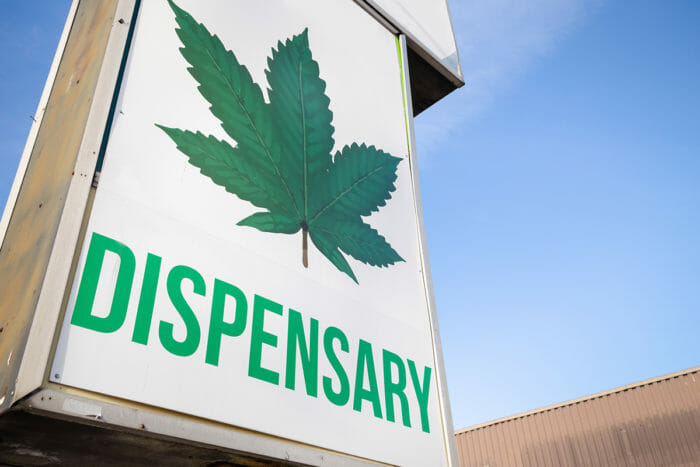
Marijuana dispensaries will be able to offer many of the same products for recreational use that were previously only for medical use. This includes marijuana flowers, concentrates, edibles, and other products.
The main difference will be the potency allowed for many of these products. Edibles sold for recreational use will be limited to 10 mg per serving of tetrahydrocannabinol (THC) and a limit of 100 mg of THC per package. Some products for medical use have much higher potencies of THC, and these will remain available, but only to those with medical marijuana cards.
Dispensaries will be prohibited from marketing to children or selling products that market to children, including any marijuana products that look like candy or fruit or have animal or cartoon character mascots or packaging.
Will It Be Legal to Drive While Under the Influence of Marijuana?
Even with Proposition 207 in place, driving while under the influence of marijuana will remain illegal. Some components of marijuana remain in the body for days or weeks after the “high” has worn off, so testing positive for the drug does not automatically mean that a person is impaired. Law enforcement would need to prove impairment through other means such as a roadside test or erratic or dangerous driving or behaviors.
Will All Marijuana Be Taxed?
Part of Proposition 207 includes a new sales tax on recreational marijuana. This tax rate will be 16% of the sale of all recreational marijuana, which matches the rate already in place on alcohol and tobacco. The tax was designed to please critics of the proposition and conservative voters and help communities with the extra funds. Beneficiaries of these tax dollars will be community colleges, police and fire departments, and the Arizona Highway User Fund.
It is important to note that the new tax will only be charged on recreational purchases. The tax does not apply to medical marijuana purchases.
What Is the Social Equity Program?
The new proposition aims to attempt to make amends for the previous criminalization of marijuana. The Social Equity Ownership Program is part of Proposition 207 and allows for prioritizing licenses for communities disproportionately affected by previous marijuana legislation. The exact details of how this will work is a little unclear, but there will be 26 social equity licenses available through this measure.
How Will the Cannabis Criminal Expungement Work?
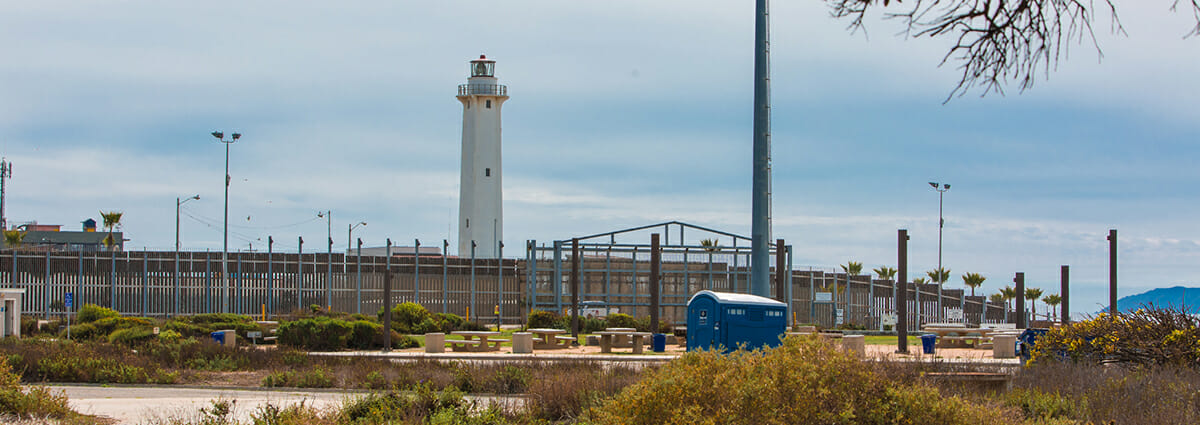
Under the new laws, it will now be legal to possess, and even grow, a certain amount of marijuana when previously these acts were illegal. Many people have been criminally prosecuted because of these crimes, which will soon be considered legal. To try to make things fairer, Proposition 207 allows for anyone previously charged with these crimes to have the opportunity to clean up their legal record.
This will go into effect starting in July 2021. Those who have convictions on their record of possession of 2.5 ounces or less of marijuana, less than 12.5 grams of concentrate, less than six marijuana plants, or any marijuana paraphernalia may file a petition to have their record cleared of these charges.
Hundreds of thousands of Arizona residents stand to benefit from this measure in Proposition 207. These charges can prevent people from obtaining employment at certain jobs, renting and finding housing, and other major hindrances to everyday life. Clearing these charges gives many people a new chance at being more successful citizens.
What’s Next for MMJ Patients in Arizona?
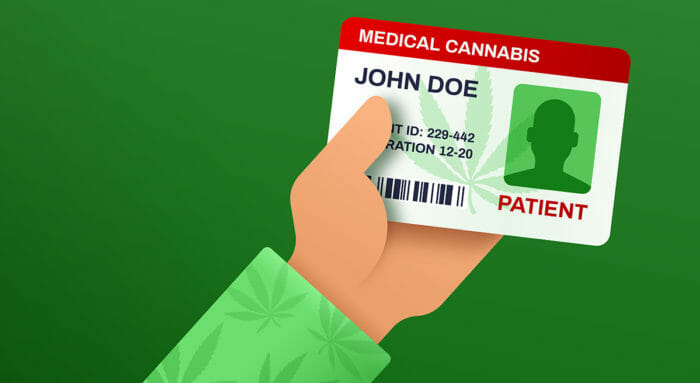
With the rollout of Proposition 207, legalizing recreational marijuana in Arizona, many are wondering what this means for the medical marijuana (MMJ) program. Some critics even
worried that the proposition would eliminate the medical marijuana program; however, this is not the case.
The medical marijuana program in Arizona isn’t going anywhere just yet, and this new legislation simply expands the opportunities for marijuana and decriminalizes possessing and growing it.
The dispensaries that currently provide cannabis products to medical marijuana will continue to do so throughout the process of enacting the new laws. These dispensaries will be able to apply for dual licenses and later be able to offer products for recreational marijuana use as well. It’s likely that most, if not all, medical marijuana dispensaries will apply for this dual license because it will greatly expand their customer base. MMJ dispensaries will be given preference once the license application process begins.
Proposition 207 has some clear limits on the amount of THC allowed in edible products; however, this is only for recreational use. Edible products with higher levels of THC will still be available to medical marijuana cardholders in the potencies that they are used to. Additionally, any dispensary with dual licensure will be able to offer these products to MMJ patients.
The new sales taxes on recreational-use marijuana will also not affect medical marijuana patients. The new tax will only apply to products sold for recreational use and will not be charged on products for medical use.
In short, the new proposition will not change the medical marijuana program in Arizona. If you are an MMJ patient in Arizona, you will be able to continue to get the products you need just as before, with no changes to the program. The potency limits and taxes will apply only to recreational marijuana purchases, and the medical program will remain unchanged.







